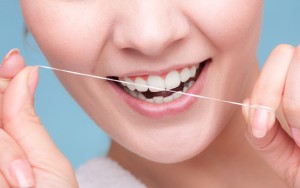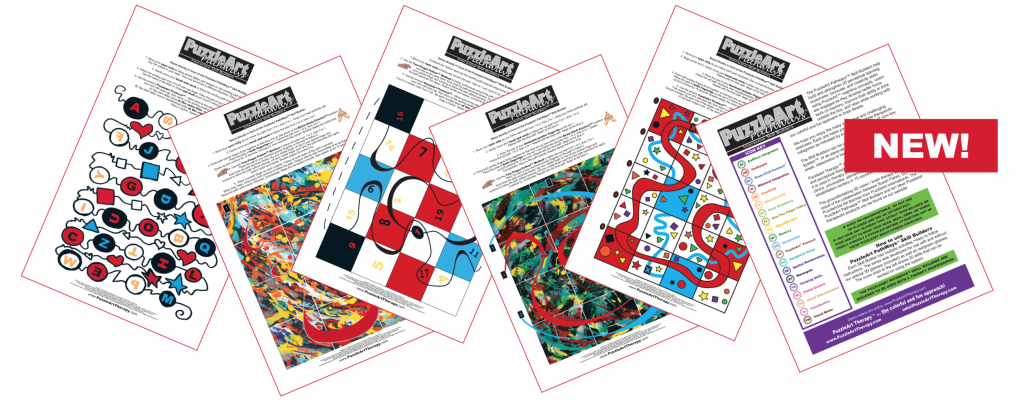Mental Floss: Develop the Brain Training Habit
Some things are just automatic – you get up in the morning, brush your teeth, make your morning coffee and perk up over a little caffeine and social media fix. Those life skills and habits are not something we’re born with, but something we learn.
Take brushing your teeth. Most of us don’t remember being taught, but at some point we had to learn how to squeeze the toothpaste tube, move the brush, how to spit out the toothpaste and rinse the brush, and how to work the floss between each of our teeth. You probably haven’t thought about this for a while, because it’s just what you do every day for good oral hygiene. It’s automatic – you don’t have to think about it. But if you do any step in the wrong order, or skip a step, or miss days (or weeks!) it won’t work as well or be as effective.
We need to train ourselves to give our brains the same kind of mental tune up we give our teeth each day – it’s mental floss for the brain! I spend 3 minutes each day using a little mental floss on my brain with PuzzleArt exercises, and I feel the difference when I miss a day or more.
But do you need a little mental floss? Well, if you’ve experienced any of the following, it might be time to start working those mental muscles, cleaning out the gunk, and developing heathy brain habits for life!
Have you noticed any of the following?
- Reading is slowing down
- Losing your place on a page or even in a paragraph
- Loss of concentration
- Reading the same line again (and maybe again and again)
- Having trouble following closed captions or scrolling/moving headlines on TV
- Increased difficulty reading road signs either in daytime or at night, or both
- Can’t remember what you JUST read
- Mild to severe eye strain and pain when using electronic devices
- Feeling sleepy
- And more…
Have you wondered, “What is going on with my eyes?”
Well, despite your best intentions to stay forever young, you are probably getting older, and while time marches on, so does our good eyesight. But does this have anything to do with your brain? Yes – absolutely! The same issues impact our brains as we age – they start to slow and function can diminish. The key that many don’t realize is that visual issues can signal that there are cognitive problems occurring as well (and we all want to fight cognitive decline!).
Since 80% of what is processed in the brain comes through the eyes, the health of both are highly intertwined. Those irritating symptoms that crop up while you’re reading? They can be a signal of underlying issues, and they should not be ignored.
Studies show that the above list of age related symptoms can be the cause of headaches, blurred vision, occasional double vision(diplopia), dry eyes, and general eye strain which can cause quality of life problems as we age. As the baby boom generation continues to age, the trend of increasing eye issues will increase. But eye problems can begin to surface as early as age 30!
So what can be done to keep our eyes and our brains strong and healthy? Well, just as we exercise our bodies, our brains need a workout, and this workout can be accomplished effectively through the eyes. Perceptual activities train the eyes to work in a specific way. Just as physical therapy helps us regain and improve muscle strength and movement, oculomotor exercises train the brain and eyes to work together in the healthiest way.
A good eye and brain training program should be implemented daily, and this mental floss needs to become a part of your routine. You should begin slowly, with only 3 minutes a day of brain training, and then build on that base.
To start your own brain training program, download a free beginner PuzzleArt Pathway (link – not seeing this on the site). This activity will help develop your focus and concentration in a seemingly simple way. While you work on strengthening your brain with visual exercises, be sure to focus on your breathing, as deep breathing exercises are another easy but vital step to brain fitness! You can track your progress with my free Breathe for Brain Fitness Tracker.
What may seem simple is, in fact, heavy duty vision therapy that will get you on the path to brain fitness. When you’re ready for the next step, the PuzzleArt Therapy System has hundreds of activities to help develop and improve 20 perceptual and oculomotor skills. Strengthening your brain through your eyes with a little daily mental floss will have you on your way to eye health and brain fitness in no time!
Alli Berman is a Brain Fitness expert and the Eye Brain Fitness Guru. She has been an artist, author, educator, creativity consultant, workshop leader, perceptual and sensory products and programs developer, and motivational speaker for the past 30+ years. Berman has served as an educational advisor to the American Academy for Anti-Aging Medicine for over 30 years, and she is the founder of The Art of Rehabilitation and Anti-Aging Art. She created the PuzzleArt Therapy System in collaboration with behavioral optometrist, Susan Fisher, OD, and through consultation with neuroscientists around the world. Berman uses the system herself on a daily basis as her very own mental floss routine to keep her own brain as healthy, engaged, and challenged as possible!

